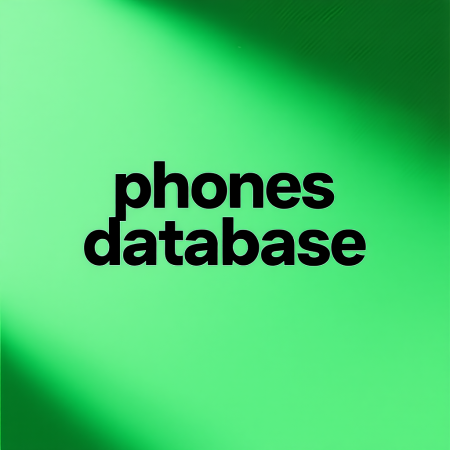How are these lists made?
These databases are created in several ways. Sometimes, people willingly give their numbers. This happens when you sign up for a service. You might fill out a form or saudi arabia phone number library create an online account. Your phone company also has your number and details. This data can be sold or shared. Public records are another source. So are social media profiles. Sometimes, this data is collected without people even knowing it. This lack of consent is a big reason for privacy concerns.
The Different Kinds of Phone Databases

Not all phone databases are the same. Some are highly specialized. They might contain numbers for people in a specific industry. Others are very general. They might include numbers from an entire country or region. There are also databases that are "opt-in." This means the people on the list have given permission to be there. Opt-in databases are considered more ethical and effective. Other databases are compiled without permission. These are often used for unwanted marketing, also known as spam.
Uses of Phone Databases
Phone databases are used for many things. They are a tool for businesses, governments, and other organizations. Their uses can be both helpful and harmful.
Business and Marketing
Businesses are the main users of these databases. They use them for marketing campaigns. A company can send text messages to thousands of people at once. They can also make telemarketing calls. This helps them find new customers. It also helps them tell old customers about new products. A real estate agent in Rajshahi Division might use a list to announce new properties. This type of marketing is quick and direct. It can be very effective if done correctly.
Customer Service
Phone databases are also very useful for customer service. If a customer has a question, a representative can quickly look up their details. They can call the customer back to solve a problem. This helps businesses provide better support. It makes the customer feel valued. It can lead to higher customer satisfaction. Having a database of customer numbers makes communication much easier.
Lead Generation
For sales teams, these databases are a key tool for "lead generation." A lead is a potential customer. By having a list of numbers, a salesperson can reach out to many people. They can find out who is interested in their products or services. This helps them find new business opportunities. It is a way to find people who might not have found the business otherwise.
Public and Emergency Services
Governments and public services also use phone number databases. In an emergency, they can use these databases to send alerts. This is very important during natural disasters or other crises. For example, a flood warning can be sent to all mobile numbers in a specific area. This can help save lives. These databases can also be used for public information campaigns, like health announcements.
Privacy Concerns and Regulations
The use of these databases raises major privacy issues. People are concerned about who has their number. They worry about unwanted calls and messages. To deal with these concerns, many countries have created laws.
Unwanted Calls and Texts
One of the biggest problems is spam calls and texts. People dislike getting messages from companies they don't know. These unwanted messages can be very annoying. To fight this, many governments have created rules. They often require businesses to get a person's permission before sending messages. This is called "opt-in." Many places also have "Do Not Call" lists. People can add their numbers to these lists to stop unwanted calls. These rules help protect consumers and give them more control.